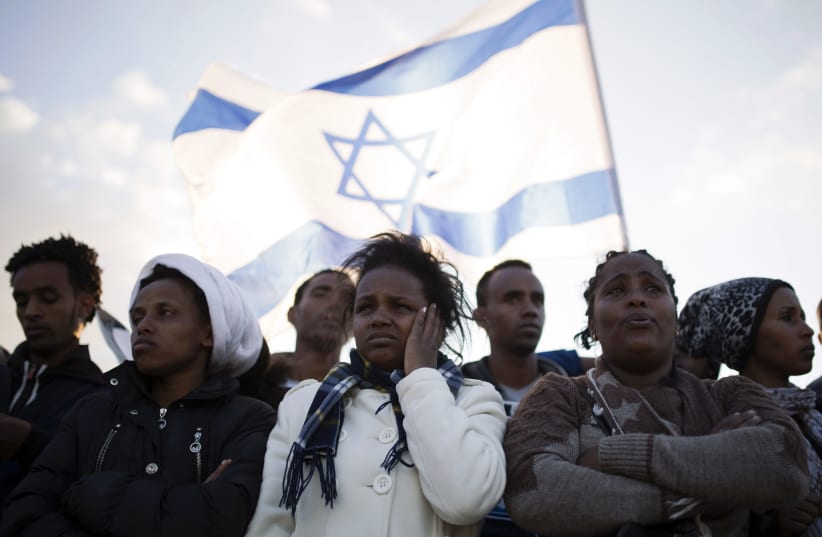A Related Video You May Like:
The lawyers also opposed the filing of the classified documents if they would not be allowed to view it, questioning whether the state was dealing with the court in good faith or “altering” terms of a non-existent deal with destination countries for deportation.Also on Monday, the High Court peppered the state with questions about how it was going to tie together all of the disparate migrants’ litigation in different courts to formulate a comprehensive response.The state appeared to resist the court’s push in that regard, preferring to keep various cases separate from one another.In mid-March, the High Court of Justice put a temporary freeze on the state’s policy to deport African migrants in a dramatic development that could foreshadow the court canceling the state’s policy as it has in the past.According to the court’s decision, the state had been due to file a comprehensive brief supporting the policy and addressing all related proceedings that are working their way through the judicial system by March 26.In the last few months, the state has issued notices to large segments of the remaining 30,000-plus African migrants in the country saying that they must accept $3,500 and deportation to a third country or they will be detained on April 1.Though at first it appeared that the mid-March freeze might only be for a couple of weeks, it is starting to appear that it could go on for an extended period of time.Also in mid-March, the justices had leaned hard on the state to explain aspects of its policy of deporting African migrants.The basis of the policy was a prior High Court ruling permitting the state to deport the migrants as long as they chose deportation “voluntarily;” the destination countries agreed to accept them; and that their human rights were not violated in the destination country.It has been widely reported that most migrants are being deported to Rwanda, while Uganda has been mentioned as a secondary destination.The migrants have asked the High Court to reconsider its approval of the deportations because their rights are being systematically violated in Rwanda and Uganda.The state’s lawyer had said she was unable to answer virtually any questions other than in a closed-door hearing without the migrants’ lawyers present.However, at one point, she let slip that there had been changes to Israel’s agreement with the destination states.This aroused the justices’ curiosity.Justice Neal Hendel asked, “Is there a new deal?” The state lawyer replied, “There is an update to the deal.”Deputy High Court president Hanan Melcer asked: “What do you mean that there is a small change? Before we were talking about voluntary deportation.Maybe now it says that it is permitted to deport them against their will – is that a small change?” The broader debate about the migrants addresses both how and why they arrived in Israel. Even though most migrants crossed into Israel illegally from Egypt, international law requires protecting refugees who cannot return to their country of origin for fear of prosecution.Meanwhile, the state has told the High Court that it will likely grant refugee status to Sudanese from the Nuba area the same as it plans to for around 300 Darfurians.It announced the likely policy change in a legal brief it filed with the High Court late on Thursday, but which was not distributed to the media.According to the brief, the state has been close to making a shift toward recognizing around 300 hundred Darfurian refugees’ status since November, but as early as mid-March had asked the court for an extension on the issue.The brief was responding to a petition filed by Carmel Pomerantz who told The Jerusalem Post that the state’s notice of a likely change in policy had taken her by surprise.In the brief, the state also says that a critical meeting was held in mid-March to address the issue, but it is still unclear whether the expected change in policy will be a matter of weeks or months.Unlike most of the mid-30,000 migrants in Israel the state is trying to deport or press to leave, the change would mean the state views the Nuba Sudanese to have the same special persecuted status as the Darfurians in terms of having fled genocide.Both the UN and a special Israeli court for migrant issues have ruled essentially that Eritreans in Israel have, or at least likely have a right to refugee status since they view Eritrea as a dangerous country.Some European countries have taken the opposite position and attempted, like Israel, to justify deporting migrants, arguing that they are only seeking better economic conditions, which is not grounds for refugee status.
State delays migrant deportation in possible softening of position
The designated deportation day was pushed back from April 1 to April 9.
